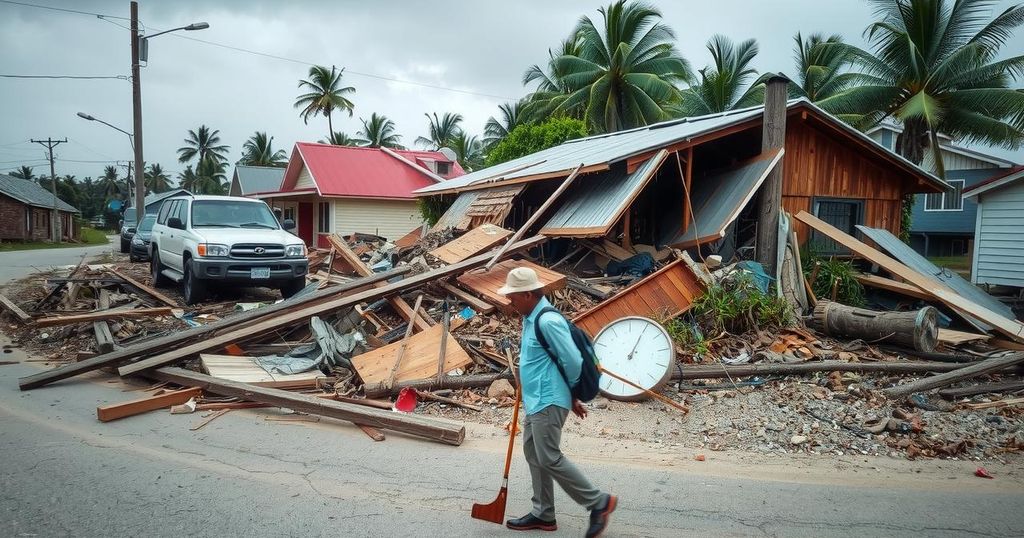Cyclone Chido Causes Catastrophic Damage in Mayotte, Death Toll Estimated in Thousands
The French territory of Mayotte is facing a humanitarian disaster following Cyclone Chido, which the Prefect estimates may have resulted in hundreds to thousands of deaths. The intense cyclone caused severe damage to infrastructure and homes, particularly in impoverished areas, and led to extensive emergency response efforts from France. Meanwhile, Chido continues to threaten neighboring regions, raising concerns of further casualties and damages during the cyclone season.
In the aftermath of Cyclone Chido, devastating reports have emerged from the French territory of Mayotte, where the head official has indicated that the death toll may range from several hundred to potentially thousands. Mayotte Prefect François-Xavier Bieuville characterized this event as the most severe cyclone to strike the island in nearly a century, citing widespread destruction and difficulties in accurately assessing casualties. Initial reports from the French Interior Ministry confirmed at least 11 fatalities alongside over 250 injuries, a figure anticipated to rise significantly.
The cyclone, categorized as a category 4 storm, battered the island with winds exceeding 220 kph (136 mph), resulting in extensive damage to essential public infrastructure including the airport. Much of the devastation predominantly impacted the island’s poorer slums characterized by informal housing, leading Bieuville to express concern that the tragic loss of life vastly surpasses official estimates. Rescue efforts commenced promptly, with France dispatching teams and supplies, as well as military aircraft to assist the beleaguered territory.
Simultaneously, Cyclone Chido continued its path towards mainland Mozambique, causing widespread concern for the more than two million residents in affected regions. The United Nations Children’s Fund (UNICEF) confirmed substantial destruction in the Cabo Delgado province region, emphasizing the likelihood of communities facing isolation from critical services for an extended period. Cyclone season in this region from December through March increases vulnerability to natural disasters, with previous cyclones resulting in thousands of fatalities in the surrounding countries. Overall, the repercussions of Cyclone Chido in Mayotte and the broader Indian Ocean region underscore the urgent need for humanitarian assistance and global climate resilience efforts.
Cyclone Chido has wreaked havoc primarily on Mayotte, a French territory that is notably France’s poorest overseas department. Mayotte’s geography, being situated in the southwest Indian Ocean near the African coast, places it in a region frequently susceptible to cyclones, particularly during the cyclone season which spans from December to March. The recent cyclone is a tragic instance in a worrying trend wherein cyclones have intensified due to climate change, disproportionately affecting vulnerable populations in lesser-developed nations.
In conclusion, the aftermath of Cyclone Chido has highlighted an urgent humanitarian crisis in Mayotte, with local officials estimating the death toll could reach thousands amidst widespread destruction. While rescue efforts are underway, the dual threat posed by the cyclone’s impact on infrastructure and ongoing climate change necessitates immediate global attention and assistance to protect the most vulnerable communities.
Original Source: www.cbsnews.com




Post Comment